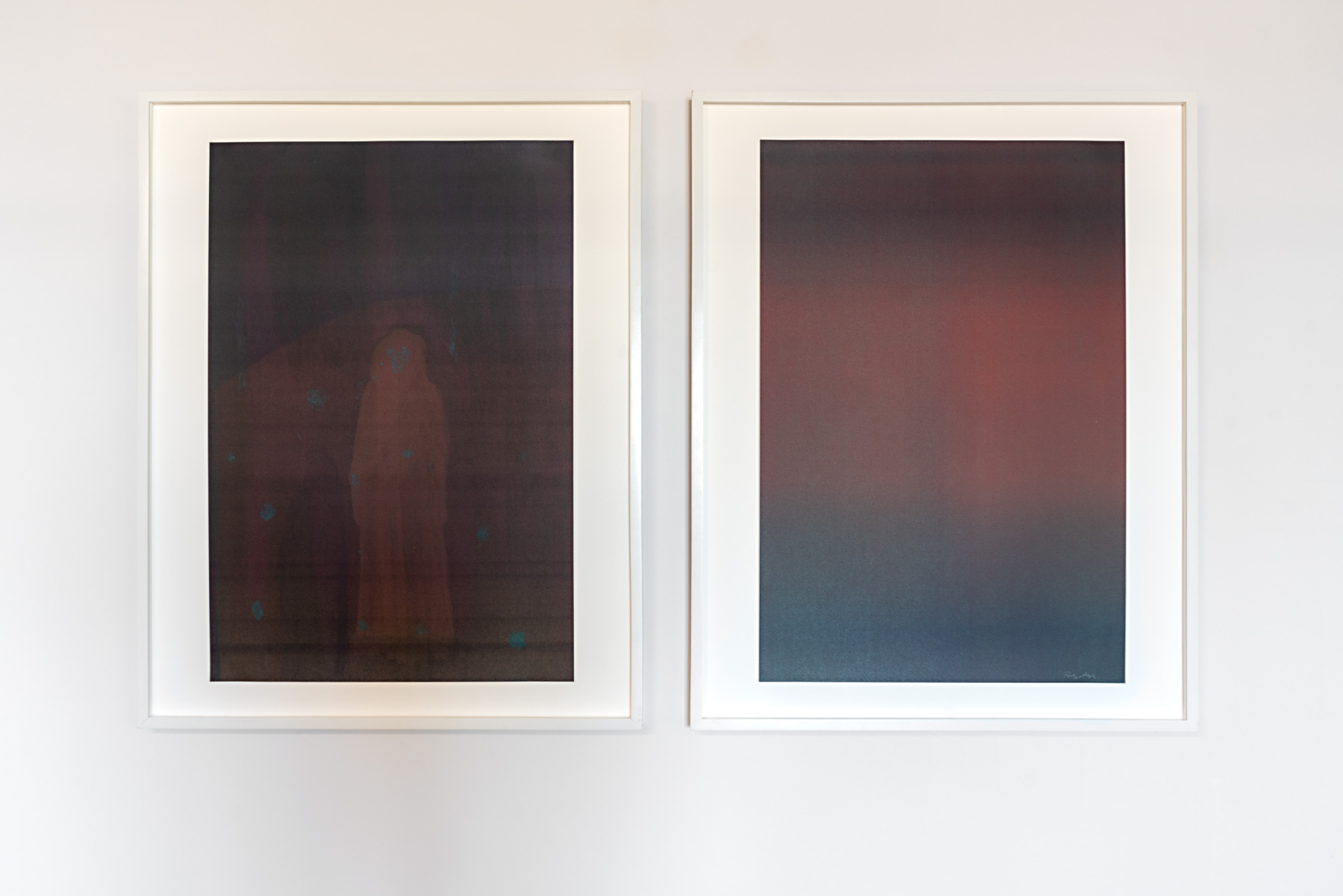The Elusive Residue of Memory in Hazy Prints

The following article originally appeared in Hyperallergic in March 2022.
ALBUQUERQUE — “I think of all prints as interior or psychological landscapes,” New Mexico-based artist Maja Ruznic writes. “These prints are perhaps my surrender to Shadow and my hope is that they will invite a similar kind of acceptance in the viewer.” This writing appears in reference to the 16 new monotypes in her show, Migration of Spirits at the Tamarind Institute in Albuquerque. Ruznic is known for ambient, Rothko-like color field paintings in which diaphanous human subjects emerge like specters, half-abstracted, and not quite in focus. They seem drawn from memory, verging on obliteration, and more emotive than “realistic.” In Ruznic’s own reflections, she associates her work with her childhood and having to flee Bosnia and Herzegovina in 1995.
Like many artists brought to Tamarind, this is Ruznic’s first foray into printmaking. For Migration of Spirits, she began by setting the color field and, slowly, over the course of added layers, she discovered and drew out her figures. Although some prints remain figureless, specific subjects emerge in some and repeat in others, reflecting Ruznic’s additive process. Each time, she placed a plain piece of paper on top of another highly saturated print, using the trace (or shadow) of the saturated impression to begin a new work. Portraits thus morph from one to the next — “Shadow 3” bears some resemblance to “Shadow 4” and “Shadow 6” — each with a hard crop fringe, round face, and child-like proportion. Yet the images remain distinct, not quite exact, and disconcerting for their differences, as though the effort of making these portraits stems from an attempt to remember specific people. As though, through this intuitive process, Ruznic inadvertently tries to recall some person from the past. Yet the resulting image is never quite right but rather confounds one’s attempt to access the original source. Perhaps it’s true — we undermine our access to the past when trying to bring it into focus.